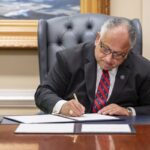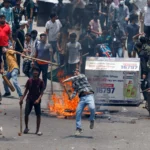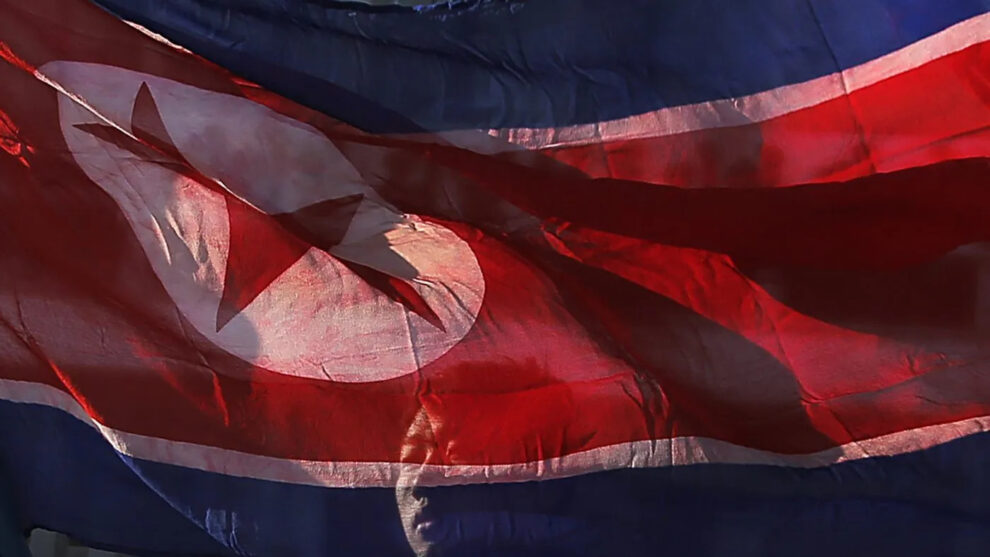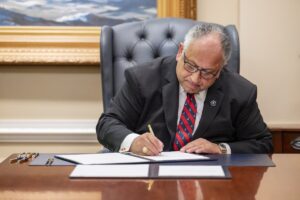Ukrainian President Volodymyr Zelensky, on May 2023 at the Hague, called for the establishment of a special hybrid tribunal to pursue accountability for Russian President Vladimir Putin’s crime of aggression.
Discussions are underway for the creation of such a court through the U.N. General Assembly. There is, of course, the International Criminal Court (ICC) in the Hague, which was specifically created to hold individual perpetrators accountable for international crimes. But the court is not able to hold Putin accountable for the crime of aggression because jurisdiction over the crime requires consent from Russia. For this reason, the ICC was able to issue an arrest warrant only for the war crime of unlawful deportation of children — not for waging war against Ukraine.
These discussions at the General Assembly could have serious implications for the situation in North Korea, with increasing calls from the U.N. and the international community to hold the North Korean leader and its regime accountable for crimes against humanity.
The U.N. Commission of Inquiry on Human Rights in the Democratic People’s Republic of Korea (DPRK) in 2014 concluded that widespread and systematic forms of human rights abuse, which amount to crimes against humanity, was taking place in North Korea. More specifically, the commission report found that violations of right to food, torture and inhuman treatment, arbitrary detention, discrimination, freedom of expression, the right to life, freedom of movement, and enforced disappearances, including in the form of abductions and nationals of other states, were taking place.
Based on this report, the human rights situation in North Korea was discussed for the first time at the U.N. Security Council in December 2014, and certain member states supported the referral of the situation to the ICC for further investigation. Nonetheless, the discussions foundered in the next few years, as the Trump administration began talks with North Korean leader Kim Jong Un through various summit meetings. In addition, China and Russia have continuously objected to openly discussing North Korean human rights issues at the U.N. Security Council as one of its agendas, arguing that, as a procedural matter, the UNSC was not the appropriate forum and that these discussions would rather escalate tensions on the Korean peninsula.
In June 2023, North Korean human rights issues were raised again in an open session at the U.N. Security Council, with support from over 60 countries. The U.S. and the Republic of Korea emphasized that North Korean human rights issues, including forced repatriation of North Korea defectors, should be discussed at the UNSC since it is closely interlinked with the North Korean nuclear issue.
The Republic of Korea also underscored that the North Korean regime should be held accountable for crimes against humanity through the ICC or other lawful means, as North Korea human rights are a critical issue for resolving international peace and security. The U.N. Special Rapporteur on the situation of human rights in the DPRK, Elizabeth Salmón, reported that human rights in the DPRK continue to deteriorate, especially due to prolonged border closures during the COVID-19 pandemic, and that accountability should be pursued by member states through not only international but also domestic avenues.
As such, the DPRK is facing increasing pressure from the U.N. and the international community to improve its human rights situation; some are even arguing for the establishment of a special tribunal to hold the perpetrators accountable. But as in the situation in Ukraine, the U.N. Security Council is unlikely to pass a resolution referring the human rights situation to the ICC due to China and Russia’s veto power.
Moreover, the DPRK has not signed on to the Rome Statute of the ICC, limiting its jurisdiction over the regime. While domestic platforms can be utilized to pursue accountability, the possibility of establishing a special tribunal for the DPRK cannot be excluded considering recent discussions at the U.N. to create a special tribunal for Ukraine.
President Zelensky argues that the U.N. General Assembly could pass a resolution requesting the U.N. Secretary-General to negotiate an agreement with the government of Ukraine to establish a tribunal as it did in the case of Cambodia in 2003. It is unclear at this point whether it will be created, but if it is, it would set an important precedent for the DPRK and the international criminal justice system as a whole.
Thus, these discussions need to be closely examined, as they may provide new pathways to pursue accountability for international crimes.
Source : TheHill
















